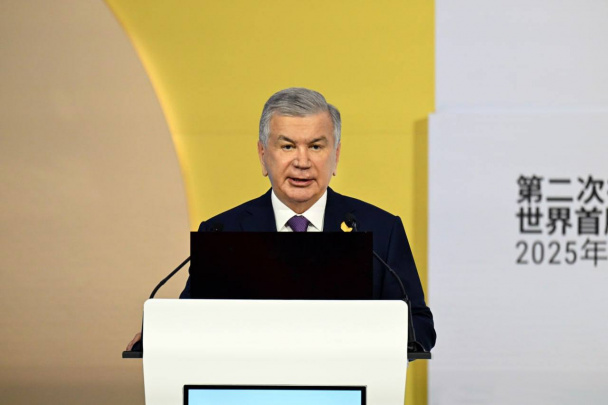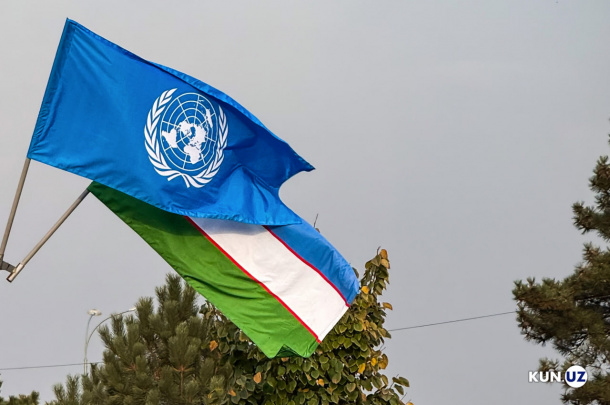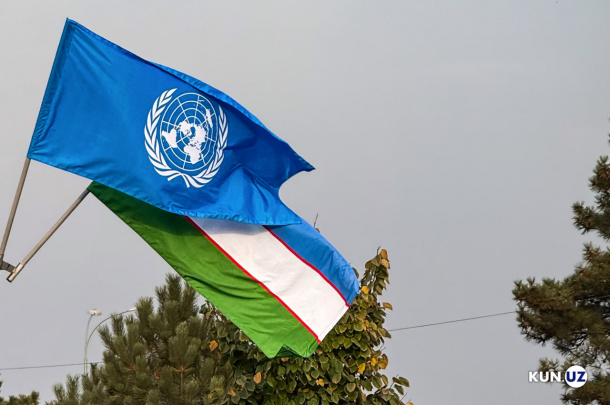UNGA 2024: Why can’t the UN stop Israel? - Interview with international relations expert
In an exclusive interview with Kun.uz, international relations expert Mirko Dautovic delved into the key topics discussed during the 79th United Nations General Assembly (UNGA). The conversation covered a range of global issues, from international diplomacy to the complexities of the UN's role in addressing conflicts, particularly the ongoing Gaza-Israel crisis. Mr. Dautovic offered a critical analysis of the UN's limitations and the challenges facing multilateral diplomacy in today’s global order.
The Significance of the UN General Assembly
Mr. Dautovic began by emphasizing the importance of the UN General Assembly as a unique global forum where the heads of 193 member states come together annually to negotiate and address major international challenges. He described the assembly as a "parliament of the world," where diplomatic engagement takes place on a level unlike any other international platform. According to Dautovic, this gathering provides a rare opportunity for world leaders to engage in face-to-face discussions, facilitating direct diplomacy and the exchange of ideas on pressing global matters.
Diverging Global Priorities
The interview also explored how different global powers have approached the General Assembly. Mr. Dautovic pointed out that while French President Emmanuel Macron emphasized the ongoing conflict in Ukraine and the war in Gaza, other nations, such as China, shifted their focus towards long-term issues like climate change. These varying priorities reflect the diverse concerns of the international community, highlighting how geopolitical interests shape the agenda at the UNGA.
The Gaza War and the UN Ceasefire Resolution
A major focus of the interview was the Gaza conflict and the UN's inability to enforce meaningful change. Mr. Dautovic discussed the recent UN resolution calling for a ceasefire in Gaza, which passed with the support of 124 countries. However, he noted that the resolution remains non-binding, meaning it lacks the enforcement power to compel action. He highlighted that this has been a recurring issue in the UN's efforts to address the Gaza-Israel conflict, where the United States has repeatedly used its veto power in the Security Council to block resolutions aimed at curbing Israeli actions. This underscores the structural limitations of the UN in mediating conflicts when powerful member states, such as the U.S., exert their influence to shield allies from accountability.
Israel’s Strained Relations with the UN
The interview further touched upon Israeli Prime Minister Benjamin Netanyahu's speech at the UNGA, in which he referred to the assembly as a "house of darkness." Mr. Dautovic analyzed Netanyahu's increasingly defiant stance toward the UN, reflecting Israel's frustration with international diplomacy and its growing disregard for multilateral institutions. This contempt, he argued, was exemplified by recent Israeli actions, such as an attack on Beirut during the UN session, and by the Israeli government’s strong criticism of UN Secretary-General António Guterres. According to Mr. Dautovic, Israel's shift away from engaging constructively with the UN is part of a broader pattern of disengagement from multilateralism.
Africa’s Push for Greater Representation
In the interview, Mr. Dautovic also commented on the proposal by U.S. Ambassador to the UN, Linda Thomas-Greenfield, to grant two African countries permanent seats on the UN Security Council, albeit without veto power. While he acknowledged that this move could improve African representation at the highest levels of international governance, he criticized it as a largely symbolic gesture that would not grant African nations real influence in decision-making processes. According to him, the proposal reflects the diplomatic complexities surrounding the reform of the Security Council, where powerful nations are reluctant to share the authority vested in veto power.
Challenges Facing the United Nations
Concluding the interview, Mr. Dautovic discussed the broader challenges that prevent the UN from being an effective force in international affairs. He explained that the UN's ability to act decisively is often limited by the sovereignty of its member states. In essence, for the UN to be truly effective, nations must be willing to cede some of their sovereignty in support of collective decision-making and enforcement. However, this is a difficult compromise for many states, especially when national interests conflict with international consensus. This structural limitation, coupled with the Security Council's veto system, continues to hinder the UN's capacity to address some of the most pressing issues in global politics.
Related News

21:13 / 04.11.2025
President Mirziyoyev calls for stronger global cooperation to reduce poverty and inequality

13:11 / 03.11.2025
UN warns UNESCO and Uzbekistan over unlawful evictions in Samarkand’s heritage zone

15:53 / 25.10.2025
Uzbekistan and UN launch new cooperation framework for 2026–2030

12:58 / 25.09.2025



